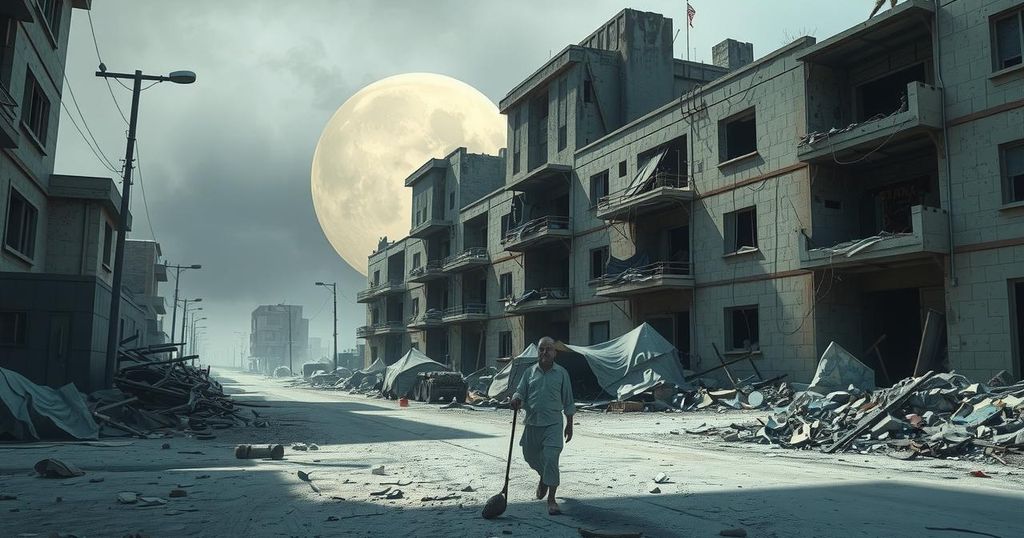French military base in Djibouti is proposed for enhanced role in counter-terrorism. In Sudan, recent military gains in Khartoum by the SAF occur amidst extensive humanitarian crises. Grassroots organizations are vital for support but face threats from fighting. The RSF remains active in Darfur, complicating prospects for peace. The international response to the crisis is deemed inadequate.
French President Emmanuel Macron is advocating for a renewed strategic purpose for the military base in Djibouti, emphasizing its significance in counter-terrorism efforts and regional stabilization. The Djibouti base plays a critical role in supporting operations against Islamist groups in the Horn of Africa and provides a significant logistical hub for French military presence in the region. Macron’s proposal aims to enhance cooperation with neighboring nations and boost security initiatives in the area, addressing emerging threats from various extremist factions.
In recent developments, Sudan’s capital, Khartoum, sees its de-facto military ruler visiting the presidential palace after recent territorial gains against paramilitary groups. Despite these advances, the future of stability in Khartoum, once a booming metropolis of East Africa, remains uncertain due to the extensive humanitarian crisis exacerbated by protracted conflicts since April 2023. Conditions in Khartoum, marked by major infrastructure destruction and widespread displacement, leave the city reeling from the consequences of war.
Grassroots humanitarian efforts have become pivotal as local responders address the urgent needs of displaced populations. Aid worker Mathilde Vu highlighted the critical role of these grassroots organizations, which operate with minimal resources to provide essential services, including food, psychological support, and repairs to essential infrastructure. However, sustained violence poses threats to these efforts, as indicated by the casualties among local aid workers during intense fighting.
As the Sudanese Armed Forces (SAF) consolidate control over significant locations within Khartoum, observers caution against assuming stability will follow military successes. Political scientist Abiol Lual Deng emphasized that the destruction suffered by residents involves more than just physical violence, leaving many in dire need of comprehensive support amidst a fragmented urban environment.
The SAF now faces the challenge of restoring order while addressing civilian needs in a city that has historically been the economic heartbeat of Sudan. Dallia Abdelmoniem noted that while some displaced individuals are returning, they are met with perilous circumstances devoid of basic services.
Despite tactical gains, the potential for renewed fighting exists as the Rapid Support Forces (RSF) maintain a strong presence in Darfur, where its leadership continues to engage in regional political dynamics. Analysts warn that further military actions by the SAF could escalate the conflict rather than facilitate peace.
Civilians caught in the crossfire suffer greatly, particularly in regions like Darfur where reports of starvation and humanitarian blockades prevail. The ongoing situation necessitates an urgent and unified international response to provide aid without political bias. Humanitarian organizations strive to maintain neutrality in their operations, but their ability to access communities is frequently hampered by both armed factions.
As the situation evolves, the international community faces mounting criticism for its inadequate engagement and support. Calls for an increase in pressure on conflicting parties are paramount to ensure humanitarian aid reaches those affected, minimizing the conflict’s toll on innocent civilians. The overarching complexity of Sudan’s predicament hints at wider geopolitical implications affecting the region’s stability and future.
The article highlights the deteriorating situation in Sudan, particularly in Khartoum, where military advances by the SAF raise questions about long-term stability amid ongoing humanitarian crises. Grassroots efforts remain vital for providing critical support to displaced populations, yet these initiatives are increasingly under threat. The conflict’s persistence suggests that simply regaining territory will not equate to establishing peace. A strengthened international response is crucial to prevent further suffering and address the needs of civilians caught in the turmoil.
Original Source: www.arabnews.com






